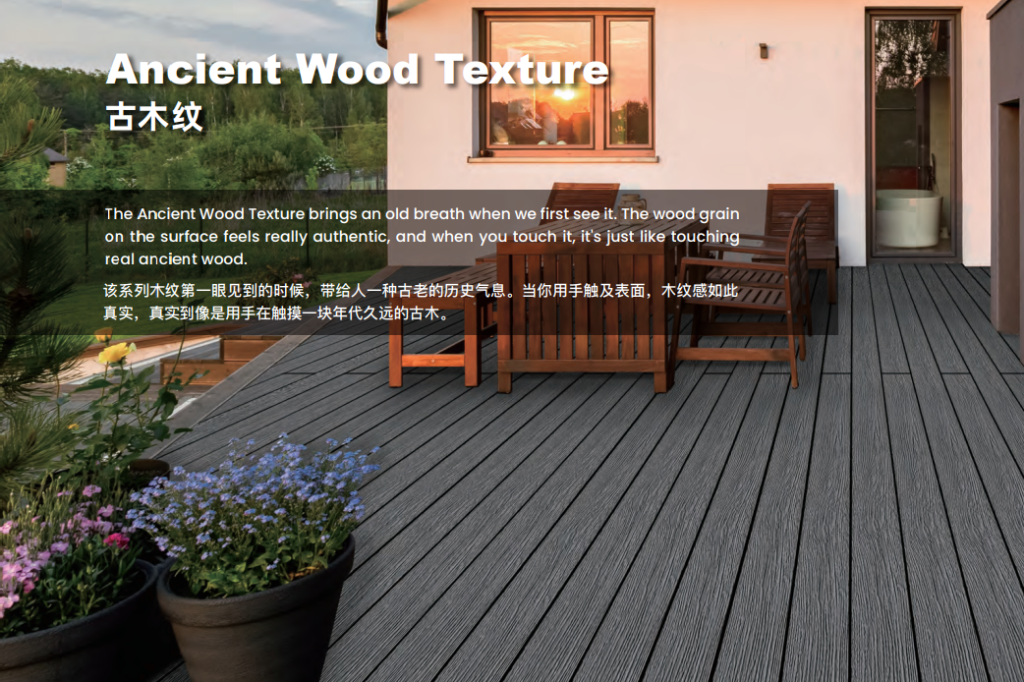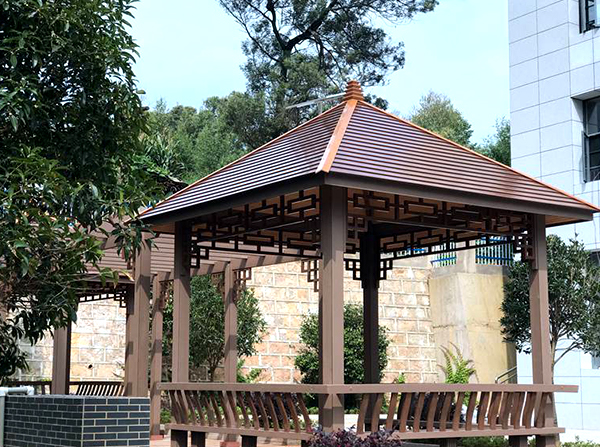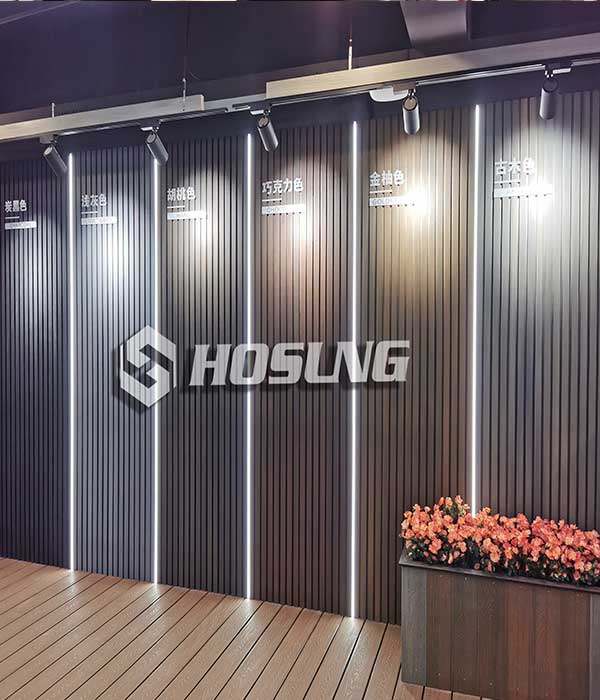Due to the unique climate of Malaysia, many types of decking (terrace flooring) are suitable. Currently, the more popular decking materials include solid wood, composite wood, plastic wood, bamboo wood, and mixed materials. Solid wood decking, such as teak, balau and ironwood, is popular for its natural beauty and high durability, especially for users who pursue a natural atmosphere. Composite wood and plastic wood are ideal for modern residential and commercial projects because of their water-resistant, moisture-proof and insect-proof properties. Compared with solid wood, composite wood and plastic wood have low maintenance costs and do not require regular oiling or waxing. Bamboo wood decking is an environmentally friendly material with durability close to hardwood while retaining the unique texture of bamboo, which is gradually favored by green building advocates.
Table of Contents
The application of mixed material decking is also increasing in the Malaysian decking market. This type of material usually combines the advantages of multiple raw materials, such as a mixture of wood fiber and plastic, which is not only beautiful but also resistant to extreme climate conditions. Whether it is an outdoor terrace for a private residence or a landscape platform for a commercial venue, these types of decking can provide a variety of options to meet the needs of consumers.
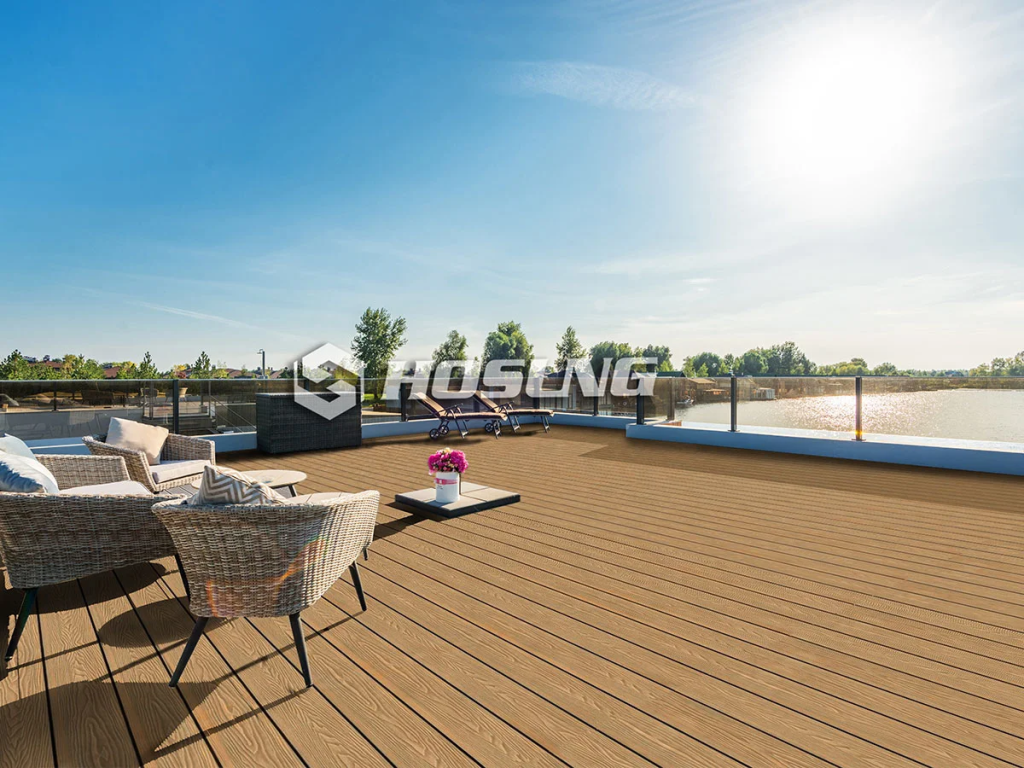
Suitable Decking Types in Malaysia
Solid Wood Decking
Solid wood decking is one of the most classic and high-end choices in Malaysia. Its main materials include tropical hardwoods such as teak, balau, ironwood and Bengal teak. These woods can cope well with the rainy and humid environment in Malaysia due to their high density and natural waterproof and insect-proof ability. In addition, solid wood decking has natural wood grain and warm touch, which is very beautiful and suitable for users who pursue high-end design and natural atmosphere.
- Applicable scenarios: This type of decking is widely used in the courtyards, pool surrounds and resort terraces of high-end residences, and its unique texture enhances the grade of the overall environment.
- Maintenance requirements: Regular oiling and maintenance are required, especially in exposed or humid environments, to extend the service life and maintain the gloss.
Composite Wood Decking
Composite wood decking is an extremely cost-effective choice, made of a mixture of wood fiber and plastic, combining the natural beauty of wood and the high durability of plastic. This material is waterproof, moisture-proof, insect-proof, and not easy to crack or deform, which is very suitable for the humid and rainy climate in Malaysia. In addition, it can be customized in a variety of colors and textures, with an appearance close to natural wood, while requiring no complicated maintenance.
- Applicable scenarios: Commonly used in residential balconies, pool edges, public walkways and commercial terraces, it not only meets the durability requirements but also improves the aesthetics.
- Maintenance requirements: Easy to clean, just wipe with a damp cloth or rinse with water, it is an ideal low-maintenance material.
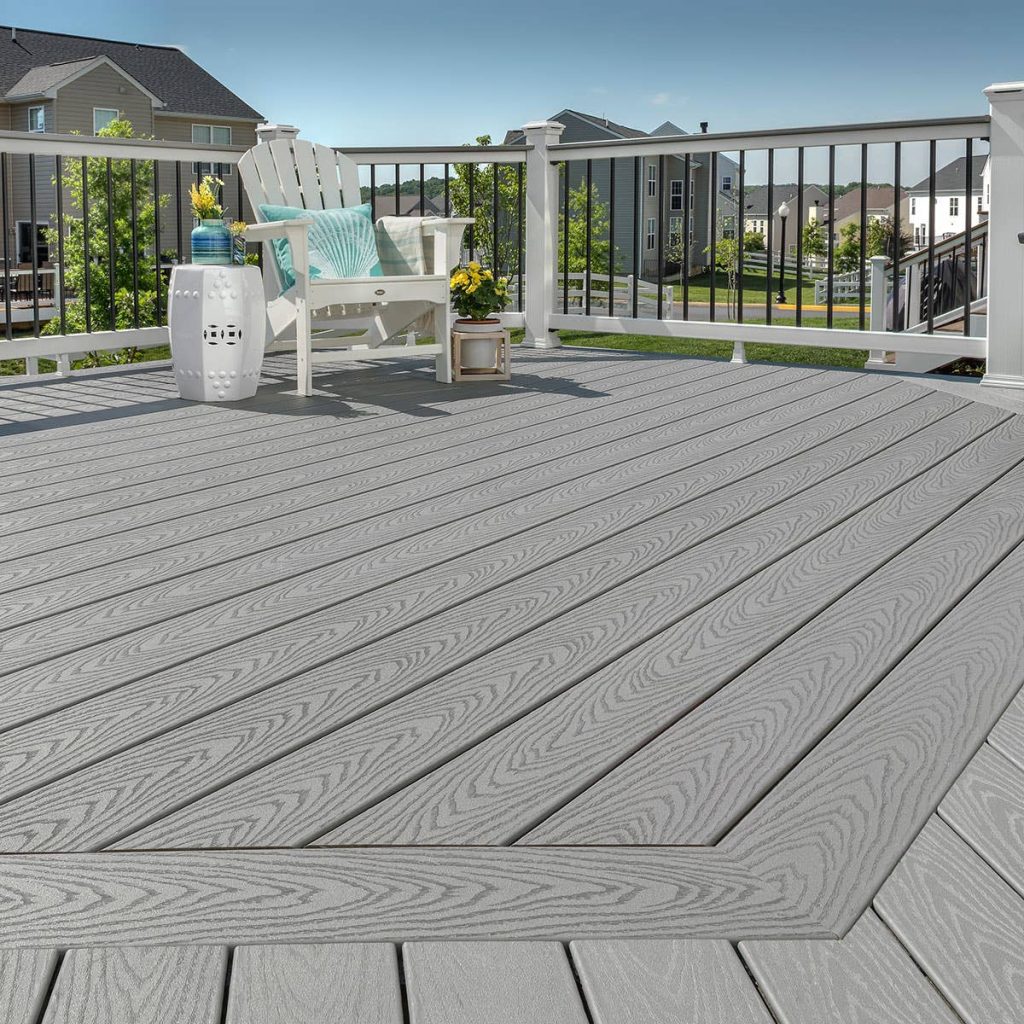
Plastic Wood Decking
Plastic Wood Decking is made entirely of plastic and does not contain wood fiber, making it an ideal choice for humid environments. The surface of this decking has excellent anti-slip effect and provides a safe walking experience even after rain. Plastic wood materials will not swell or rot due to humid environments. At the same time, its various colors can imitate the texture of natural wood, which is suitable for users who pursue modern styles.
- Applicable scenarios: Especially suitable for swimming pool areas, seaside promenades or other places that are often exposed to water to ensure long-term stability.
- Maintenance requirements: No waxing or oiling is required, just rinse with water to clean, it is the easiest type of decking to maintain.
Bamboo Decking
Bamboo decking is an environmentally friendly material made of compressed bamboo fiber and environmentally friendly adhesives. It is both beautiful and functional. It retains the natural texture of bamboo, while its hardness is close to that of hardwood, and it can withstand the rainy and humid weather in Malaysia. In addition, bamboo decking has strong UV resistance and can maintain stable color after long-term sun exposure. It is the first choice for users who pursue green buildings and environmentally friendly lifestyles.
- Applicable scenarios: Commonly used for residential terraces, garden trails, and balcony decorations to add a touch of natural atmosphere to buildings or courtyards.
- Maintenance requirements: Occasional waxing and regular cleaning are sufficient, and the maintenance cost is low.
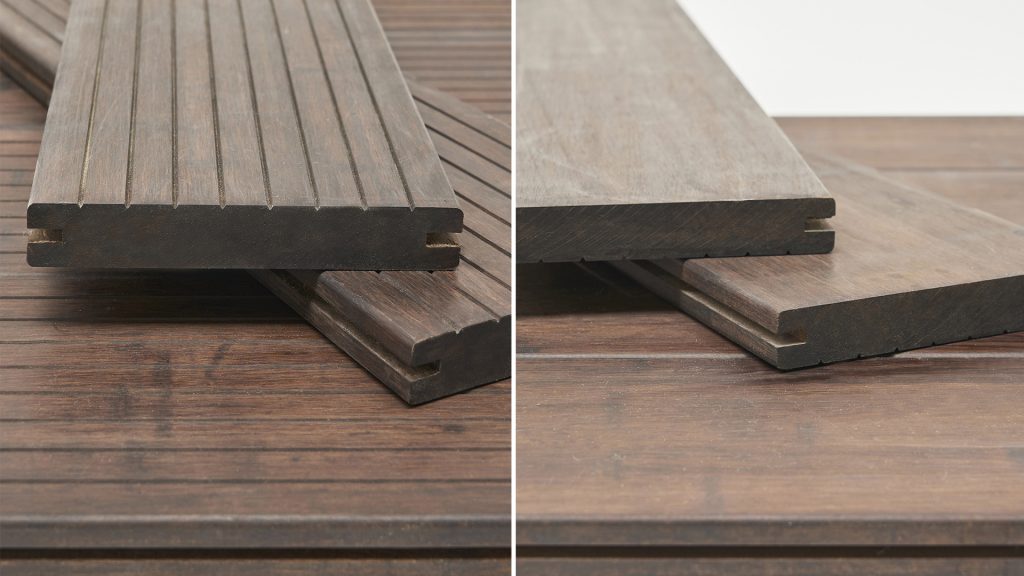
Mixed material decking
Mixed material decking is a combination of multiple materials such as wood, plastic and bamboo fiber. It has the durability of composite wood and the low maintenance characteristics of plastic wood. This material is light but strong, can withstand high traffic use, and maintain stable performance under extreme weather conditions. At the same time, its rich color selection and customizable texture can meet various design needs.
- Applicable scenarios: Suitable for high-traffic public areas such as park trails, outdoor restaurants and commercial spaces, and also suitable for private residential courtyards that require durability.
- Maintenance requirements: Almost no special maintenance is required, and daily cleaning can maintain its appearance and performance.
Stone Plastic Decking (SPC Decking)
Stone plastic decking is a new material made of stone powder and plastic fusion. It has become a new favorite in the Malaysian market with its super hardness, fire resistance and mildew resistance. Stone plastic decking has excellent heat expansion resistance and can maintain the stability of shape and function even after long-term exposure to high temperatures. Its non-slip surface provides additional safety for slippery areas, while the appearance is simple and modern.
- Applicable scenarios: Very suitable for areas exposed to high temperatures and sunlight, such as outdoor balconies, swimming pools and coastal boardwalks.
- Maintenance requirements: Stone plastic decking has extremely low maintenance costs and only requires simple cleaning, which is suitable for efficient modern life needs.
All of the above decking types have their own unique characteristics and applicable scenarios. Users can choose the most suitable material according to their specific needs, budget and environmental conditions. Whether it is the high-end natural texture of solid wood or the low-maintenance advantages of composite wood, these deckings can provide beautiful and durable solutions for outdoor spaces in Malaysia.

Why is cpmposite decking suitable for Malaysia?
Malaysia is located in the tropics, with a hot and humid climate and rich natural resources and outdoor activity culture. Therefore, decking is widely used in Malaysia. The moisture-proof and anti-slip properties of terrace flooring are particularly suitable for environments with frequent rainy seasons. For residential use, decking is usually used as a floor material around swimming pools, courtyards, balconies and roof gardens, while in the commercial field, restaurant terraces, hotel outdoor areas and public parks also use a large number of decking materials.
In addition, the thermal insulation performance of decking is particularly important for hot weather. Composite wood and plastic wood decking are particularly popular because they can effectively reduce surface temperature. Many resorts and residential developers in Malaysia choose decking, which not only improves the beauty of the building, but also enhances its comfort. At the same time, decking has excellent UV resistance and is not easy to fade or age due to long-term exposure.
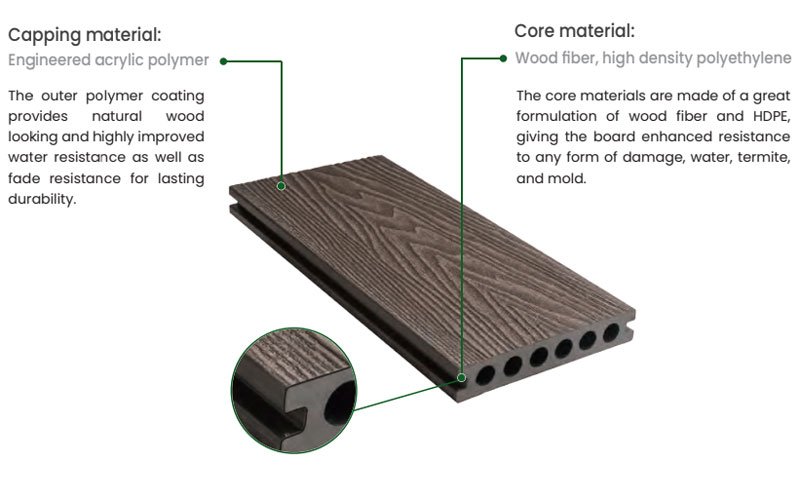
How to choose the right decking for Malaysia?
When choosing decking, you should decide based on specific usage needs, budget and environmental conditions.
- First, it is necessary to clarify the purpose of decking, such as whether it is used in private homes, commercial places or public spaces.
- Secondly, consider the performance of decking, such as weather resistance, anti-slip, maintenance requirements, etc.
- If the decking needs to be exposed to the sun for a long time, it is preferred to choose materials with strong UV resistance;
- if it is used in wet areas, such as around swimming pools, anti-slip and moisture-proof properties are particularly important.
- Color and style are also important factors in choosing decking. Malaysian consumers generally prefer natural tones such as dark brown, light brown and gray, which are not only beautiful but also blend in with the surrounding environment.
- Finally, choose the right material according to your budget. Although solid wood decking has a high texture, it is more expensive, while composite wood and plastic wood provide a more cost-effective alternative.
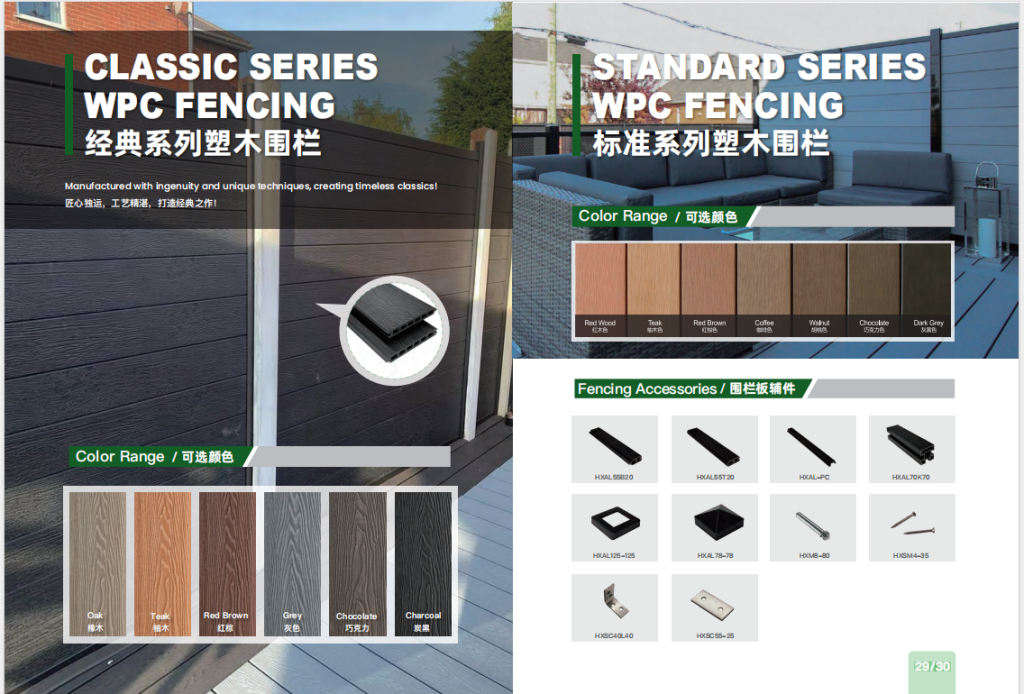
Suitable places for decking
Decking can be used in a variety of places and can be designed according to functional and aesthetic requirements.
In private homes, decking is often used around swimming pools, courtyards, balconies and rooftop gardens. Decking around swimming pools needs to be waterproof, anti-slip and durable, while decking on balconies and courtyards focuses more on beauty and comfort.
In the commercial sector, decking is widely used in outdoor areas of restaurants, hotels and resorts. It not only enhances the grade of the venue, but also provides a more comfortable environment for customers. Decking is also widely used in public spaces, such as park trails and seaside promenades. Its weather resistance and anti-aging properties are particularly important in these high-frequency use areas.
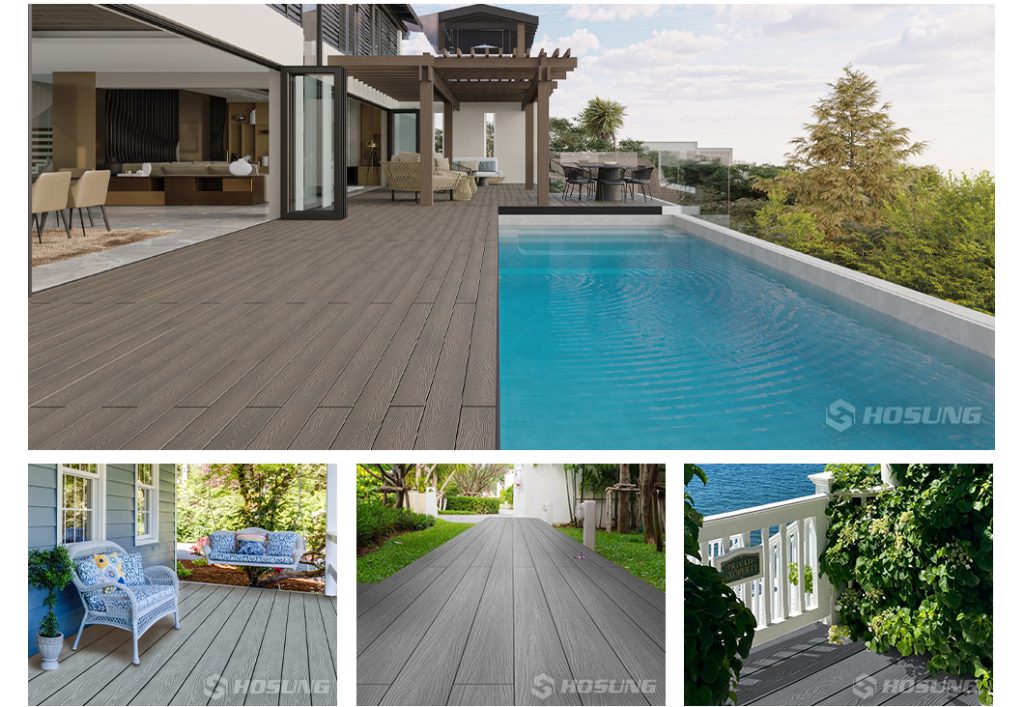
Price range of decking Malaysia
The price of decking in Malaysia varies depending on the material, brand and installation method. The price of solid wood decking is relatively high, ranging from about 100 to 300 Malaysian ringgits per square meter, and fluctuates greatly depending on the type of wood. Composite wood and plastic wood decking are relatively economical, and the price is usually between 50 and 150 Malaysian ringgits per square meter. In addition, bamboo wood decking is slightly higher than ordinary composite wood due to its environmentally friendly characteristics, about 80 to 200 Malaysian ringgits per square meter.
In addition to material costs, installation costs are also factors that need to be considered. Professional installation services can ensure the quality and life of decking, and the cost is generally 20 to 50 Malaysian ringgits per square meter. Consumers can choose DIY installation or professional services according to their budget.
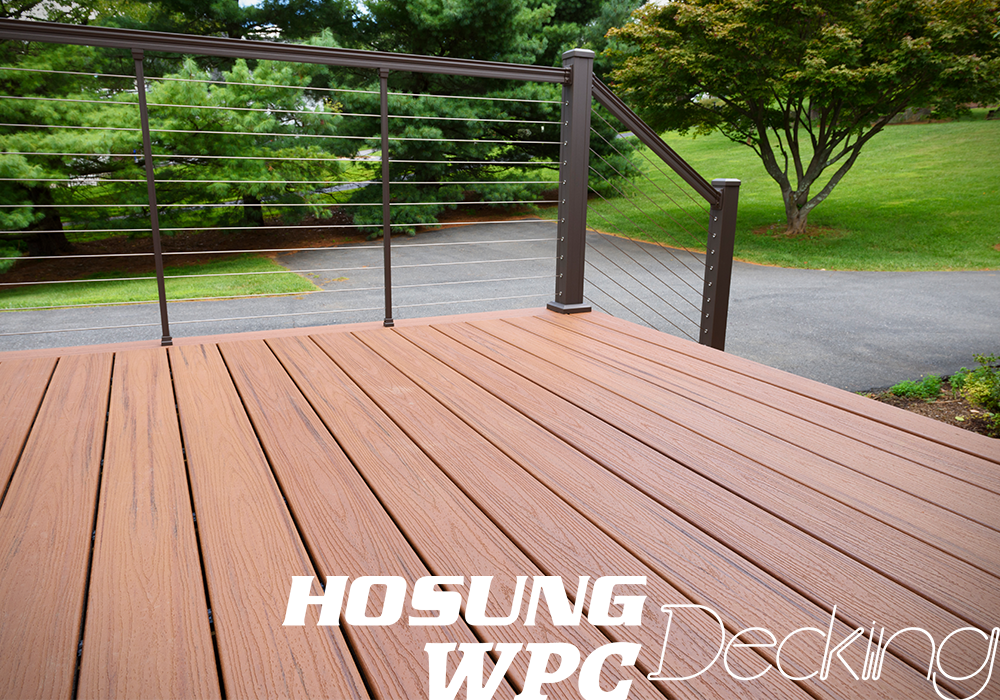
Advantages of Importing Decking from China
Importing decking from China is an important option for the Malaysian market, with many advantages. First, China’s decking production technology is mature and its product range is rich, including solid wood, composite wood, plastic wood and bamboo wood, which can meet diverse needs. Second, Chinese decking is price competitive. Due to the low production cost, imported Chinese decking can significantly save material costs.
In addition, Chinese suppliers, such as Hosung WPC, usually provide customized services, and consumers can choose colors, sizes and textures according to their needs. In addition, many Chinese manufacturers have passed international quality certifications such as ISO and FSC to ensure that the products are environmentally friendly and of reliable quality. Fast logistics and efficient supply chain also make imported decking from China an ideal choice for the Malaysian market.
Conclusion
The decking market in Malaysia is vibrant due to its diversity and wide application. Whether choosing high-end solid wood decking or cost-effective composite wood and plastic wood, consumers can find solutions that meet their needs. From the use environment to budget planning, from material selection to installation services, every detail needs to be considered comprehensively. By importing decking from China, Malaysian consumers and developers can not only enjoy more competitive prices, but also obtain high-quality and diversified products, adding more value to residential or commercial projects.

